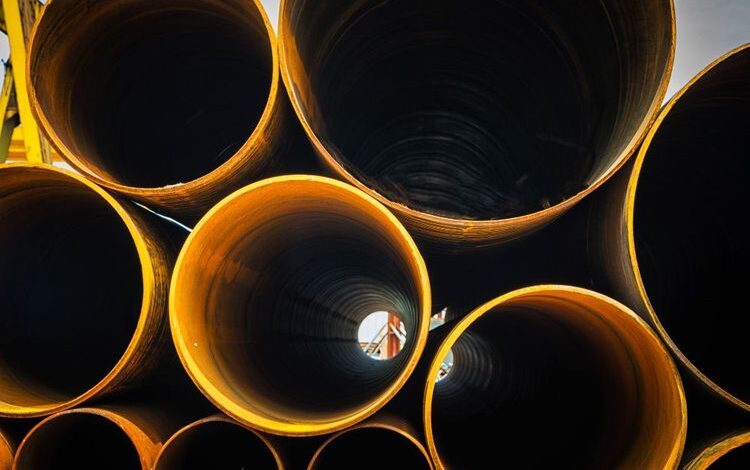Expanding Horizons: Canada’s Trans Mountain Pipeline Bolsters Global Oil Reach

$SU.TO
Suncor Energy Inc. (TSE:SU), a leader in the Canadian energy sector, has recently announced a strategic shift towards sustainable energy solutions. The company, known for its oil sands operations, is now expanding its investments in renewable energy projects and carbon capture technologies. This move aligns with global trends and regulatory pressures pushing for a reduction in carbon emissions and a transition towards cleaner energy sources. Suncor’s initiative reflects its commitment to environmental stewardship and positions it favorably for future industry shifts.
In a significant development for Canada’s energy sector, the Trans Mountain Pipeline Expansion Project (TMX) has commenced operations, marking a pivotal moment in the country’s economic and industrial landscape. Originally constructed in 1953, the Trans Mountain pipeline has been a crucial artery for the transportation of crude oil and refined products across approximately 1,150 kilometers from Edmonton, Alberta, to Burnaby, British Columbia. The recent expansion, involving an additional 980 kilometers of pipeline, has effectively tripled the system’s capacity from 300,000 barrels per day to 890,000 barrels per day. This $34 billion project, which began commercial operations earlier this month, is set to significantly enhance Canada’s ability to export crude oil to key international markets, particularly in Asia and the United States. The expansion aims to alleviate existing bottlenecks within Canada’s oil transportation network, thereby enabling upstream operators to access a wider array of buyers and potentially secure better selling rates.
The TMX project has not only expanded the pipeline’s capacity but also involved substantial infrastructure enhancements. These include the construction of new pump stations and additional berths at the Westridge Marine Terminal in Burnaby, designed to manage the increased flow and facilitate the efficient loading of crude oil onto tankers for export. The Edmonton terminal, serving as the starting point of the system, now boasts 35 storage tanks with a combined capacity of 8 million barrels, underscoring the project’s scale and complexity. Its successful completion, the TMX project has encountered several challenges, including regulatory hurdles, environmental opposition and significant cost overruns. Initially estimated at C$5.4 billion, the project’s final cost escalated to C$34 billion, highlighting the complexities associated with executing large-scale infrastructure projects in Canada.
These challenges raise questions about the feasibility of future endeavors in this sector. Moreover, the expanded pipeline’s operation coincides with increasing global demand for heavy crude, making Canadian oil particularly attractive to international buyers. However, logistical constraints at the Port of Vancouver could potentially limit the number of shipments, according to traders and shipping sources. This situation underscores the ongoing challenges and dynamics in global oil markets. As Canada continues to navigate these complexities, the TMX project stands as a testament to the nation’s commitment to enhancing its position as a leading oil producer on the global stage.
The project not only promises to optimize the value of Canada’s natural resources but also plays a critical role in the broader socio-economic landscape, influencing everything from job creation to governmental revenues through taxes and royalties. The Trans Mountain Pipeline Expansion Project represents a significant stride forward for Canada’s oil industry, promising to reshape the country’s economic contours and its strategic positioning in global markets. The industry evolves, the expanded pipeline will likely continue to play a crucial role in Canada’s economic narrative, with ongoing developments sure to attract close scrutiny from various stakeholders across the globe.
**DISCLAIMER: THIS CONTENT IS FOR INFORMATIONAL PURPOSES ONLY AND SHOULD NOT BE INTERPRETED AS INVESTMENT ADVICE. INVESTING INVOLVES RISK, INCLUDING THE POTENTIAL LOSS OF PRINCIPAL. READERS ARE ENCOURAGED TO CONDUCT THEIR OWN RESEARCH AND CONSULT WITH A QUALIFIED FINANCIAL ADVISOR BEFORE MAKING ANY INVESTMENT DECISIONS.**
